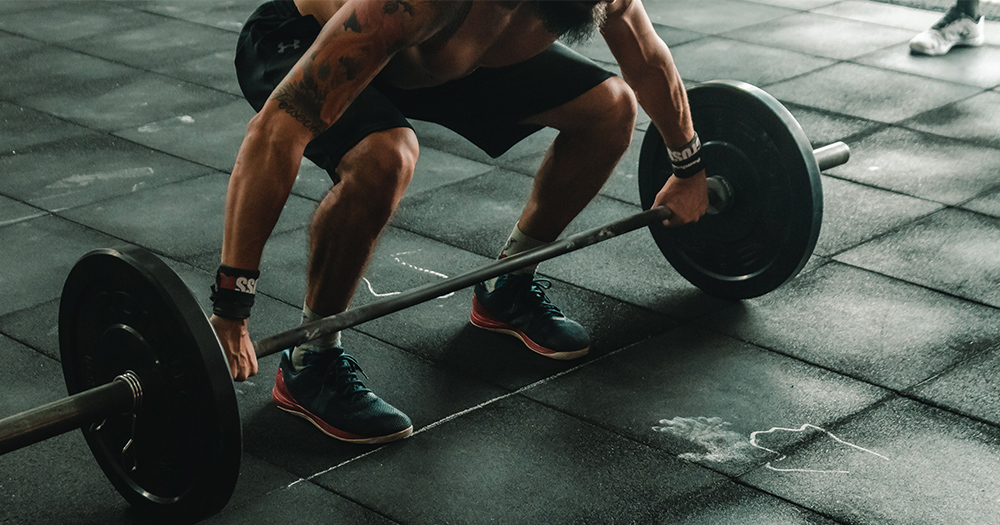“People see steroid use as cheating. I see them as enhancing.” That’s according to Diego, one of several gay men who have agreed to speak about their use of performance and image enhancing drugs (PIEDs) – more commonly known as steroids.
Clenbuterol, testosterone, testosterone propionate, boldenone, trembolone, human growth hormone, drostanolone propionate, sustanon, nanodrol, and others, are part of a jumble of substances that an individual may incorporate into their particular regime with a view to achieving greater strength and a particular appearance.
Steroid use is typically dosed in cycles of three or six months. This should be followed by a break, given the intensity of these substances on liver and kidney function, as well as on the endocrine system which regulates hormone production.
Dictated by one’s individual goals, and the time set in which to achieve them, the array of substances available, alongside the formulations, combinations, interactions and side-effects to be aware of, is daunting and seems limitless. A minimum degree of research is a prerequisite for getting started, and most of those spoken with profess at least an armchair interest in the science and research behind these drugs. However, to make meaningful inroads into using, who you know trumps what you know.
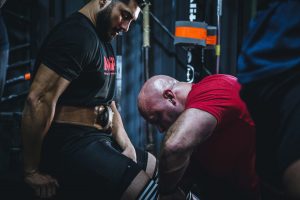
Acquaintances, colleagues, friends, and lovers are all cited as gate-keepers. Sam, who has been a steroid user for three years, explains: “I made friends with this guy and he was in really good shape but he never did any more than what I was doing [in the gym], and I questioned that. We became really good friends and he got it for me online.”
Diego, who works in the fitness industry and has been using for six years, found himself surrounded by professional body builders, simplifying access. For Karl, who no longer uses, a Grindr hookup took his number and passed it on to a dealer.
This kind of peer-led initiation extends to technique, as well as supply. The prospect of injecting himself initially deterred Aaron from using, over six years ago: “I wouldn’t have ever done it on my own. But I was dating a guy who was [using]; he was injecting and he was good at it so he used to inject me. That was one of the main reasons I started when I did,” he says. Aaron no longer has any hesitations when it comes to injecting himself.
Individual motivations vary slightly, but are broadly similar. Karl says, “I felt I was plateauing in my gym and [found] I was not getting the same attention for my looks as I used to.” For Sam, his current use is bound up with sex. Put plainly, he says: “[My] driving force? I want to have a better body because I want to have the sex that I like to have with the guys who I like to do it with.” While it is easy to look at steroid use as some kind of vanity project, such a view is in itself shallow. Overly simplistic, it can overlook deeper, more deeply rooted, complex driving forces.
“I’m a very competitive person. I’m not necessarily competing with other people, but with myself. I like the idea of pushing myself and seeing how far I can go – how much further, how much bigger. It’s a competition with myself,” says Diego. His is a sentiment shared by Aaron, who expresses it with equal assuredness. “I always want to do better, I always want more. I’m very harsh on myself: I want to be the best that I can possibly be,” he says, noting that this pursuit of perfectionism “is a common trait in the community.”
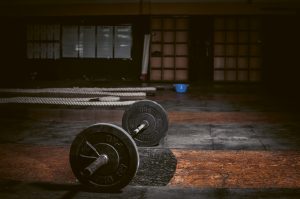
Delving deeper into the question of where such a trait may originate, Karl invokes an increasingly well-worn thesis: “Gay guys have had adversity early in their life and we, more than others, are constantly in search of validation as a result. The validation you get when you have a beautiful steroid bod that gets many compliments is pretty damn good.” Diego agrees: “The gay community in general has always had to prove itself. From speaking with my friends and people that I know, I feel they want to look this way because they want society’s approval.”
Aaron describes what this looks and feels like, and claims that today some men don’t even remember him from before he began using: “Suddenly you have this huge value that you didn’t have, purely because of how you look. It’s kind of gratifying but it’s not validating. It’s purely transactional. There’s nothing about you that they find interesting in that moment. They just like how you look. It doesn’t give you anything for your soul.”
The digital age in which we find ourselves does little to help. The way in which social media can exacerbate mental health difficulties, including those relating to body image, is increasingly accepted. An exercise in ‘compare and contrast’ for as long as one can scroll, Instagram, be it perpetuated by users or by algorithms, prioritises certain bodies, along the lines of skin colour or body type, for example.
Always connected, moving across time, space and bodies with the flick of a thumb, it’s a difficult environment to exist in while maintaining a healthy sense of self. “Instagram is a terrible culprit for feeling overwhelmed and under pressure to keep up. I tend not to look at it now. I find it super negative. It’s a ‘best-of’ reel from everyone’s life and there’s so much editing. I’m happy it wasn’t there when I was a teenager,” says Aaron. Meanwhile, as far as Sam is concerned, among those “typical Instagram gays”, the ones who command tens of thousands of followers, who, “have that amazing body: the pecs, the veins, everything is defined”, many are using steroids.
How can he be so sure? Because he has found and followed them online and offline, joining them on ‘the circuit’ – an itinerary of gay parties taking in Madrid, Mykonos, Barcelona, Brussels and beyond, during a seemingly endless summer. “I know first hand they’re [using]; they tell me, they share information about it, and their circle of gays do it,” he says. Explaining the prevalence of use, he continues: “These people, they’re career people. They don’t have the time to be in the gym morning and night. They’re putting in the bare minimum so they can show up to all these parties, look amazing and be in the pictures with other people who look amazing.”
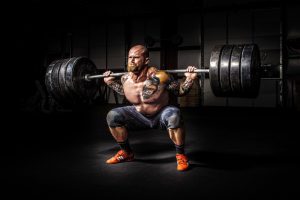
Amidst a seemingly relentless drive for ‘more’ among users, and with usage itself more prevalent than one may think, at least according to those spoken with, what of the safety and efficacy of theses substances? In the case of the latter, the answer appears crystalline among interviewees, articulated by swollen chests and sculpted shoulders. As far as safety is concerned, it’s not unreasonable to expect little from that which might be brewed in a bath and sold from the boot of a car.
“Sale and supply of much of these substances is unregulated and on a black market. They’re not sold in pharmacies, they’re not sold on prescription.” So says Mark Kennedy, Head of Residential and Counselling Services at Merchants Quay Ireland (MQI). His organisation has conducted some research into the profile and patterns of behaviour among steroid users, originally gaining access to this cohort through its needle exchange service which is designed to reduce harm.
Plainly, Mark lays out the science of steroid use: “You’re overloading your system with a huge external dosage of hormones. When you do that, your body’s own endocrine system will start to reduce its production and you’re going to get side effects. You have to take additional substances to manage those side effects. Before you know it, you’re building up on the number of tablets or injections you need to take. As people use these substances for many years, that’s going to have more long-term effects.”
Side effects span the physical and psychological. Speaking from experience, Sam describes ‘roid rage’ as “real, scary and uncontrollable,” and had him “swinging left, right and centre” with his moods, causing aggressive reactions he would not normally have to people and situations. Diego, who considers himself a patient person, has only noticed himself get “a little short tempered.” He admits, however, to “problems with his nipples and glands” after too high a dose of testosterone. He’s referring to gynecomastia, which sees a swelling of breast tissue, stemming from an imbalance in oestrogen and testosterone levels. He says a lot of men don’t notice this happening until it reaches an irreversible stage.
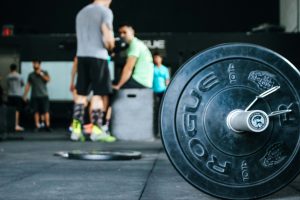
Aaron, meanwhile thinks “a lot of the physical side effects are exaggerated, over expressed, fear mongering” – but that the mental ones are “not talked about enough”. He now expects to get angry, grumpy, confident, horny and cocky when using, and depressed, sad, and without an interest in sex for a few months when not. While “it is what it is”, he worries for people with underlying mental health issues, who may not be able to push through such lows.
It’s a point echoed by Sam. “I’ve seen guys get so upset about their bodies when they look amazing. It happens when they’re off their cycle [of steroid use] and they don’t feel like that superhuman superman. They’re in their own head, depressed about their body. If steroids have any kind of effect on your brain and wellbeing, it’s damaging a lot of guys based on how they look and how they look at themselves,” he says.
Despite the side effects discussed, and the clandestine, underground nature of suppliers, everyone spoken with seems content in their use. Aside from Karl, who no longer uses and who harbours no regrets, none intend to stop, except in the case of a major health issue developing. Rather, they will tailor their individual regimes as they get older.
Steroid use is one part of a necessary, wider conversation that ought to happen in the community. A conversation that critically examines the extent to which we view ourselves and others in terms of the way our bodies look, and is cognisant of the value we ascribe to some bodies over others and the sense of privilege and exclusion that this creates. Central to this is a critical conversation about what really constitutes an ‘amazing’, ‘good’, ‘perfect’ or ‘better’ body and why – and working to deconstruct that.
For now, the last word goes to Mark Kennedy: “Why are people using these drugs? That’s a question we should be asking. Underneath it all, if you’re willing to inject yourself with substances and you don’t where they come from, maybe you’re not happy with how you look. Whether [you’re] using these substances or not – talk. The important thing is [to] get support and not feel like you’re in isolation.”
Steroids And Sex
One side-effect of steroid use is erectile dysfunction. Typically, viagra or similar is often seen next to steroids among customs seizures. Given that steroid use may be tied to sex and desire, and that horniness is a possible side-effect, it raises the question of the extent to which steroids interact with PrEP, and what that might mean for the user. Infectious diseases specialist at St Vincent’s University Hospital, Professor of Microbial Diseases at UCD and HIV researcher, Dr Paddy Mallon, says: “There would be specific interactions between Truvada [the drug most commonly prescribed for PrEP] and use of steroids or testosterone that would provide a lot of concern, and I think that both PIEDs and PrEP can be co-managed successfully.
“The key would be for users to ensure that they tell their PrEP doctor as much about their PIEDs use as possible, including which PIED they are taking, the dose and the formulation. That way, their PrEP doctor is in the best position to ensure that any adverse interactions are prevented as much as possible and, most importantly, that the PrEP continues to work. The danger is potentially twofold: where the PrEP doctor doesn’t have the full information and cannot advise the person using PIEDs and PrEP appropriately, [or] where the individual stops using PrEP properly because they want to use PIEDs and ends up contracting HIV.”
This story was originally published in GCN Issue 354.
© 2019 GCN (Gay Community News). All rights reserved.
Support GCN
GCN is a free, vital resource for Ireland’s LGBTQ+ community since 1988.
GCN is a trading name of National LGBT Federation CLG, a registered charity - Charity Number: 20034580.
GCN relies on the generous support of the community and allies to sustain the crucial work that we do. Producing GCN is costly, and, in an industry which has been hugely impacted by rising costs, we need your support to help sustain and grow this vital resource.
Supporting GCN for as little as €1.99 per month will help us continue our work as Ireland’s free, independent LGBTQ+ media.
